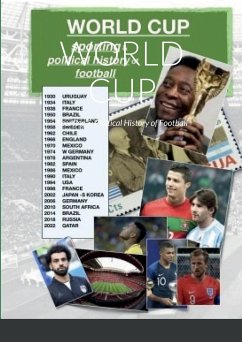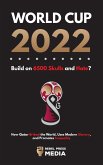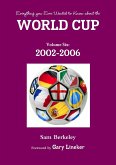The Montevideo inauguration of FIFA World Cup in July 1930, took place with participation of only 13 countries. It was 12 years after, and 10 years before the two World Wars. Centuries of colonial orders had been shattered and the future was unclear. Jules Remet the head of FIFA, worked hard for assembling those national teams in the cold winter season of Uruguay. Ninety years later, ahead of the 22nd World Cup, FIFA has 211 country members, of which 32 of them have qualified to send their teams to Qatar. Throughout these 90 years of evolving international scenes, 21 countries (5 of them twice), have hosted the World Cups in contrasting circumstances. Not only the global situation during one Cup had been different compared with the next, but also the socioeconomic and political conditions of all the host nations have had their own particular issues. As it happened, in the Summer of 1974, I saw a few matches of the 10th World Cup in Munich and Frankfort. Of course, I was interested in football, but, given the terror attacks of 1972 Olympic games in Munich, as a young student of political science, I became fascinated by Germany's atmospheric changes. I have been to other Olympics as well as World Cups in Europe and Americas and studied the history of these two premier tournaments combined with the politics of each hosting country. World Cup of Football, is not the oldest international tournament, but it is one of the few that through it's 90 years history, the transformation of world politics and sport can be studied. This book is a brief review of political and sporting history of the World Cup.
Hinweis: Dieser Artikel kann nur an eine deutsche Lieferadresse ausgeliefert werden.
Hinweis: Dieser Artikel kann nur an eine deutsche Lieferadresse ausgeliefert werden.








